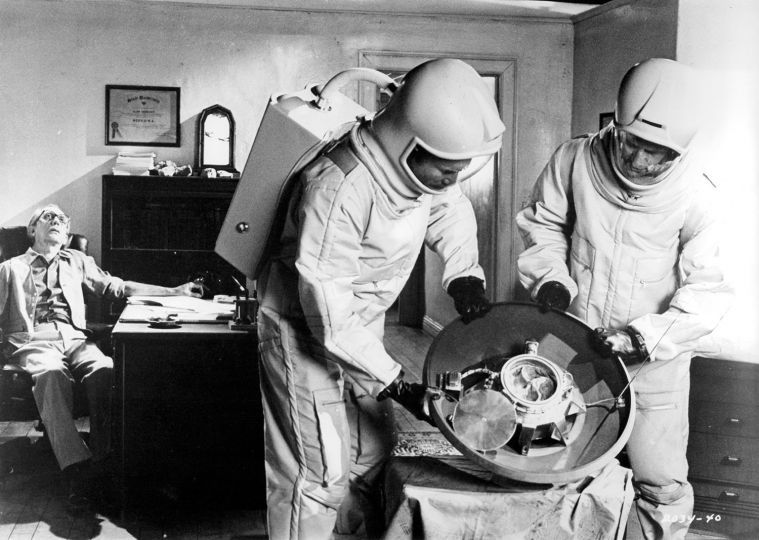maximus otter
Recovering policeman
- Joined
- Aug 9, 2001
- Messages
- 14,096
NASA is set to offer its response to that hard-hitting report issued last September by the Mars Sample Return Independent Review Board, including the rolling out of next steps for the program.
On April 15, NASA shared the agency's recommendations regarding a path forward for the costly Mars Sample Return initiative. Indeed, such an enterprise has long been a major goal of international planetary exploration for the past two decades.
The quest to bring samples back to Earth from Mars has been met with controversy in some quarters as the threat that ecologically-hungry Martian microbes might pose to our biosphere continues to be a topic of concern.

The Andromeda Strain – the 1971 movie, but how real for a 21st century return to Earth of Mars samples? (Image credit: Universal Pictures)
The Houston Chronicle published an opinion piece on April 11 titled "Is the U.S. ready for extraterrestrials? Not if they're microbes. How to defend Earth from space bugs."
While many debate the possibility of advanced, intelligent life elsewhere, few consider the probability of non-intelligent alien microorganisms. These life forms could exist on other planets or moons, hitchhike on spacecraft, or move through the universe in the asteroids they inhabit.
They could also be Earth microbes that mutate or evolve in response to the stress of spaceflight, becoming more virulent, resistant, or invasive. Either would seriously threaten the public health, safety, and security of humans, animals, and plants operating in space or living on Earth.
https://www.space.com/mars-sample-return-op-ed-astrobiodefense
maximus otter
On April 15, NASA shared the agency's recommendations regarding a path forward for the costly Mars Sample Return initiative. Indeed, such an enterprise has long been a major goal of international planetary exploration for the past two decades.
The quest to bring samples back to Earth from Mars has been met with controversy in some quarters as the threat that ecologically-hungry Martian microbes might pose to our biosphere continues to be a topic of concern.

The Andromeda Strain – the 1971 movie, but how real for a 21st century return to Earth of Mars samples? (Image credit: Universal Pictures)
The Houston Chronicle published an opinion piece on April 11 titled "Is the U.S. ready for extraterrestrials? Not if they're microbes. How to defend Earth from space bugs."
While many debate the possibility of advanced, intelligent life elsewhere, few consider the probability of non-intelligent alien microorganisms. These life forms could exist on other planets or moons, hitchhike on spacecraft, or move through the universe in the asteroids they inhabit.
They could also be Earth microbes that mutate or evolve in response to the stress of spaceflight, becoming more virulent, resistant, or invasive. Either would seriously threaten the public health, safety, and security of humans, animals, and plants operating in space or living on Earth.
https://www.space.com/mars-sample-return-op-ed-astrobiodefense
maximus otter

